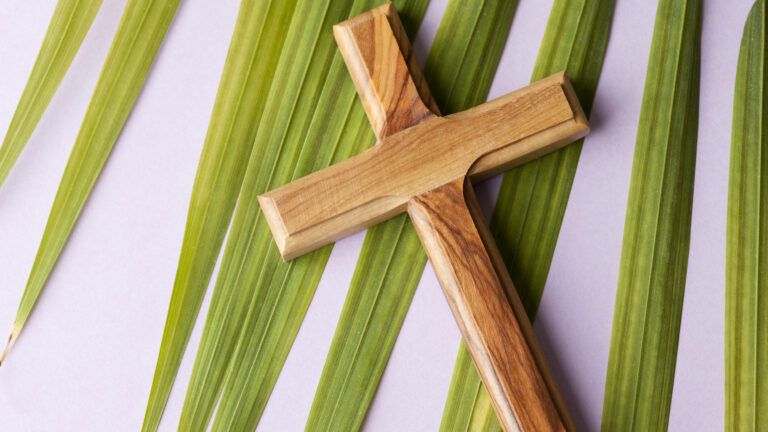Perhaps you learned to pray while still on your mother’s knee. Or maybe you followed the example of a pastor or Sunday school teacher. You may have adopted the prayer practices of a friend or mentor. Maybe you even learned to pray in church!
In any case, there are so many avenues and examples of prayer to enlarge and enrich our practice that even the most prayerful among us are still learning–and probably always will be.
And among the lessons we can learn from are the prayers of the patriarchs, those people of God whose stories are recorded in the first book of the Bible: Abraham, Isaac, Jacob, and Joseph.
They prayed like few people do these days. Here are six ways you can learn from them and pray like them:

In Genesis 18:1, the Bible says “The Lord appeared to Abraham near the great trees of Mamre.” Abraham was sitting at the entrance of his tent when he saw three men and invited them to stay. Abraham may not have immediately recognized the Lord, but his invitation is a great model for prayer.
He said, “If I have found favor in your eyes, my Lord, do not pass your servant by” (Genesis 18:3, NIV). It can be a prayer of invitation for anywhere, anytime: when entering church, when heading to work, when going to bed, etc.
2. Pray persistent prayers.
Many of Abraham’s encounters with God portray a keen Middle Eastern sensibility in which haggling and bargaining are strong values. It was apparent in the account of God’s covenant with Abraham (Genesis 15) and again when Abraham pleaded for Sodom and Gomorrah (Genesis 18:16-33).
Abraham’s tactic can be a helpful model, particularly when you are praying (as he did) based on what you know of God’s character and will: “Now that I have been so bold as to speak to the Lord, though I am nothing but dust and ashes, what if…?” (Genesis 18:27-28, NIV).
3. Pray generous prayers.
You probably know the story of how Jacob stole his brother Esau’s blessing. But did you know that part of that blessing was this wonderful prayer of Isaac: “May God give you heaven’s dew and earth’s richness” (Genesis 27:28, NIV)?
That is a prayer you can pray for your own children…or for anyone (it is one of a dozen or so prayers I often append to emails, praying as I press “send”).
4. Pray outrageous prayers.
Jacob was trembling in fear the night before he expected to meet his brother Esau, whom he had defrauded. So he prayed, “Save me, I pray, from the hand of my brother Esau” (Genesis 32:11, NIV). And God answered him, not with tender caresses but with a wrestling match.
But Jacob didn’t give up. In fact, even after being crippled by his Opponent, he demanded a blessing! He said, “I will not let you go unless you bless me” (Genesis 32:26, NIV).
Outrageous! Though he apparently knew that he could have been killed (see Genesis 32:30), he refused to be denied. Try it sometime (but make sure you mean it): “I will not let you go unless….”
5. Pray the prayer of availability.
When you read the book of Genesis, it is nearly impossible to escape the sensation that the patriarchs were much more accustomed to dialogue with God than we are. God is repeatedly portrayed as speaking to them in plain and straightforward language.
Maybe it was different back then. Or maybe it was because they weren’t glued to their smartphones all the time.
In any case, Jacob’s prayer of availability, in Genesis 46:2, is a great prayer to pray every day, throughout the day: “Here I am,” he said. It only takes a second, and the more you pray it–“here I am”–the more likely you are to hear from God and see him move.
6. Pray for your heritage.
When Jacob (or Israel, as he was also called) was taking his final breaths, he bequeathed a prayer to his sons:
May the God before whom my fathers
Abraham and Isaac walked faithfully,
the God who has been my shepherd
all my life to this day,
the Angel who has delivered me from all harm
–may he bless these boys.
May they be called by my name
and the names of my fathers Abraham and Isaac,
and may they increase greatly
on the earth (Genesis 48:15-16, NIV).
It is a prayer I pray often–adapting and expanding it liberally–for my children and grandchildren. I have prayed it in dedicating newborn babies in church. It is a marvelous thing to pray this 3500-year-old prayer for 21st century people.
Amazing, isn’t it, how utterly current and helpful these patriarchal prayers are? Which do you plan to incorporate into your prayer habits? Are there any you’ve already prayed? With what result?






